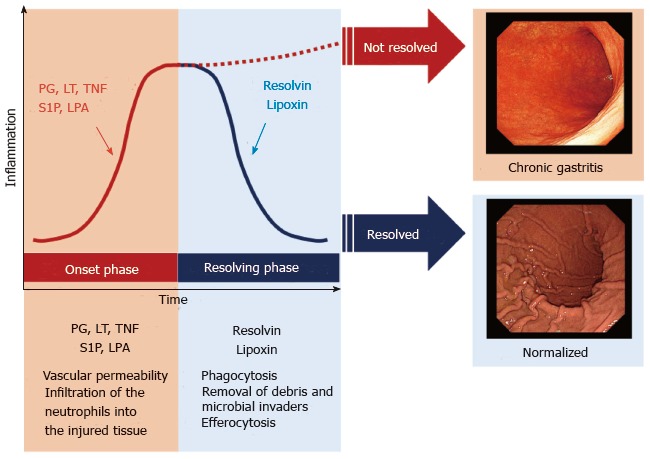Figure 1.

A course of acute inflammation with two phases: The onset phase and the resolving phase. Acute inflammation is caused by stresses such as tissue injuries, microbial infections or surgical intervention. There are two phases in acute inflammation: The onset phase, and the resolving phase. Usually, the inflammation is resolved through these phases. When the inflammation is not resolved, it develops diseases with chronic inflammation. For instance, inflammation in stomach caused by microbial infections follow a course of the two phases in acute inflammation. When the acute inflammation is not resolved through the resolving phase, it develops chronic gastritis. PG: Prostaglandins; LT: Leukotrienes; TNF: Tumor necrosis factor; S1P: Sphingosine-1-phosphate; LPA: Lysophosphatidic acid.
